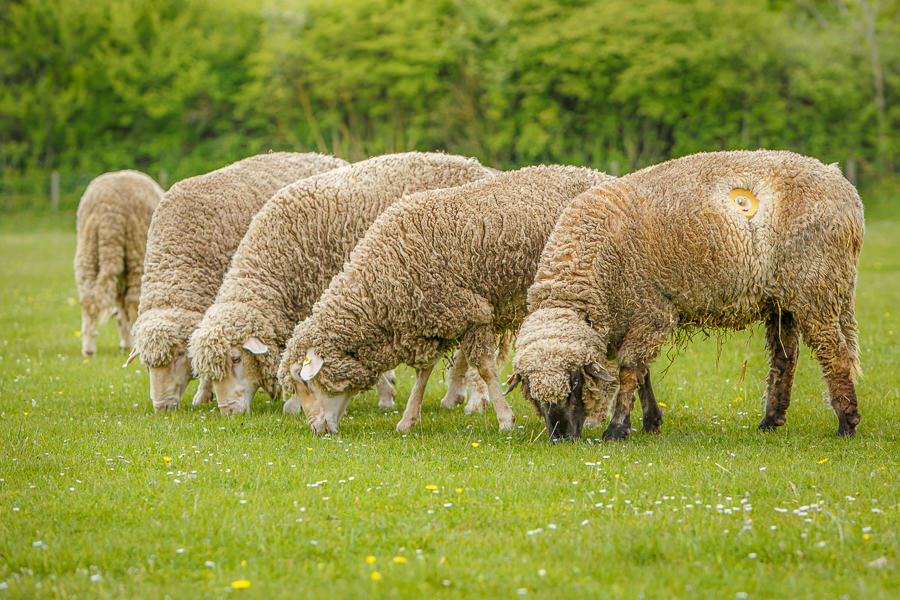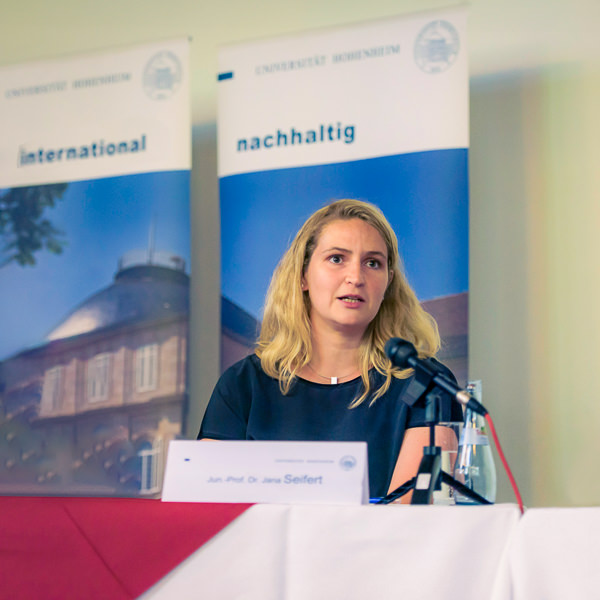
Livestock 4.0: An Omnivore’s Dream
Humans are omnivores. We can eat and digest plant-based and animal-based foods alike. But will it be possible to eat meat, dairy products, and fish in the future without remorse knowing that the livestock industry has massive negative effects on climate change?
Protein Power: Get the Max from Your Livestock
Being omnivore means that our digestive system and its enzymes are capable of breaking down and extracting nutrients from both plant-based and animal-based foods. Our teeth help us to grind plant matter and to tear meat. It is an evolutionary advantage that enabled us to adapt to different environments with varying food supplies.
Observation shows that with economic prosperity, all people tend to eat more meat and dairy products, although being an omnivore doesn't mean we have to eat both plant-based and animal-based foods. The human organism is capable of living on a vegetarian or even vegan diet alone. Leaving out animal-based products like beef, pork, and poultry or dairy products like milk, cheese, and yoghurt would be an excellent way of reducing the effects of food production on climate change. But it's not realistic to think that we will all become vegetarians or vegans anytime soon.
Research at the University of Hohenheim has taken up the challenge: A significant number of people will continue eating meat. How can we make sure that meat consumption in the future will no longer pose such a great threat to the planet?
The beef with beef (and pork, and poultry)
Here are some facts:
- 80 billion animals are slaughtered for meat each year.
- The average per capita consumption of meat in the world per year is 43 kilograms. Consumption ranges from over 100 kilograms in the US, Argentina, Mongolia, and Australia, to 5 kilograms in India and even less in the Democratic Republic of Congo.
- Food production on the whole is responsible for 26 % of global greenhouse gas emissions. 31 % of this arises from livestock alone.
Scientists around the world are asking how we can reduce the negative impact of livestock production on the environment? At the University of Hohenheim we are investigating ways to optimize the supply of amino acids to livestock.
Protein feed is essential to livestock. Proteins provide the amino acids necessary for growth. To grow high-protein feed crops, we apply fertilizers to fields. Overuse of fertilizers to maximize yields releases greenhouse gases and leads to harmful algal blooms and soil degradation. Livestock such as cattle, sheep, and goats (ruminants) produce methane during digestion, in addition. Methane is also a major greenhouse gas.
In terms of greenhouse gas emissions, the concentration of amino acids and crude protein in the feed plays a crucial role. The concentration of these goodies inside an animal determines how much the animal discharges nitrogen and phosphorus into the environment via urea and manure. In other words: more in, more out.
By implication, lowering the concentration of amino acids and crude protein in the animals' diet will lead to less excretion of matter that is hazardous for water, air, and soil.

Phosphorus is a finite resource. Our research aims to help animals process the phosphorus in plant feed as efficiently as possible, reducing the need for phosphorus from mineral sources.
Here comes the catch: If the animals don’t get enough amino acids and crude protein, they will not grow into stately creatures with lots of meat to their bones and/or many liters of milk in their udders.
How do scientists ensure that the animals stay healthy and grow strong despite feeding them lower concentrations of essential elements? By experimenting. Not random experiments, of course, but systematic ones:
- You need one or more hypotheses, and one or more previously determined methods to guarantee valid data and their analyses.
- During the study, the animals are closely observed, their weight and feed intake meticulously logged, and excretions and blood are collected and thoroughly analyzed.
- The ultimate goal of scientific studies is to formulate instructions and recommendations not only for other scientists, but preferably for practitioners everywhere in the world.
Scientific research follows fundamental principles to maintain integrity, credibility, and ethics. Objectivity, transparency, peer review, animal welfare, informed consent, and compliance with regulations are essential to the credibility of the scientific community and its contributions to society.
When scientific findings enable farmers or breeders to change the way they worked so far and turn towards a more sustainable and possibly an even more profitable production of meat while improving animal welfare at the same time, eating meat might remain possible for us omnivores.
HoLMiR: The Hohenheim Center for Microbiome Livestock Research
There’s much more research being done at the University of Hohenheim on various kinds of animals, on how they utilize protein, and on how their genetics might be used to increase nitrogen, phosphate, and protein efficiency in livestock breeding. The Hohenheim facilities that analyze the genome and gut microbiome are summarized in HoLMiR: The Hohenheim Center for Microbiome Livestock Research.
We are very proud that HoLMiR was recognized as a scientific center of national importance. Consequently, a total of 52 million Euros was granted for a new research building and large-scale equipment. The cornerstone for the new building was laid in October 2022. We hope that we will be able to use the new facility from 2025 onwards.

In the digestive tract, a complicated interaction of the animal with various microorganisms, the microbiome, regulates the processing of nutrients in feed.
Digging deeper
- GruenProHen – Bewertung von Proteinextrakten aus Grünlandaufwüchsen zur Hennenfütterung
- ProtiPig – Verbesserung der Proteinnutzungseffizienz beim wachsenden Schwein
One of Hohenheim's research groups looks at inositolphosphates and myo-inositol with a focus on mechanisms like phytase activity and what is referred to as InsP6 degradation.
Inositolphosphates and myo-inositol are naturally occurring molecules found in plants and animals that help coordinate cellular activities, regulate processes, and maintain the structure and function of cells and tissues throughout the body.
InsP6 (inositol hexaphosphate), or phytic acid as it is also called, contains phosphorus and other minerals that living beings need. Pigs, poultry, and humans lack the necessary enzymes to absorb and use them, meaning they can't 'degrade' InsP6 for further use. Cattle or sheep, however, host certain microorganisms like bacteria and fungi in their stomachs. These bacteria and fungi have the ability to break down phytic acid and help release the phosphorus from it.
Enabling InsP6 degradation in the gut of all animals will improve the nutritional value of plant-based feed. It will also reduce the need for adding extra phosphorus to the feed. Phosphorus is a finite resource, so efforts to improve its utilization in livestock are crucial for transforming the agricultural system as we know it.
Research with us
The University of Hohenheim is Germany’s leading research facility in agricultural research and food sciences, as well as strong and unparalleled in natural, social, and communication sciences.
- Researchers of Proven Excellence
Our scientists demonstrate exceptional skills, knowledge, and achievements. - Strong Focus on Research
We are very well networked and have a unique research profile. - Scientific Research facilities
The University of Hohenheim accommodates various institutions whose structures enable joint research and teaching activities, thus creating the optimal conditions for conducting outstanding research and then transferring it outside of the university. - Dedicated Portal for Early Career Researchers
We are strongly committed to qualification in the early stages of scientific careers. - Innovation and Transfer
We promote intensive cooperation between scientists, private companies, and other societal actors. - Scientific Integrity at the University of Hohenheim
The University of Hohenheim, as a center for research, teaching, and the promotion of early career researchers, undertakes to create and continuously develop the suitable framework conditions for anchoring the culture of scientific integrity and ethics in daily scientific practice. - Professorial Appointments
Our Professorial Appointment Portal offers help for all parties involved throughout the whole process of professorial appointments. - Cooperations
On all levels, the University of Hohenheim networks with universities and research institutions with outstanding international reputation. - Research Promotion
Professional and practical support and assistance through application processes for third-party funds.